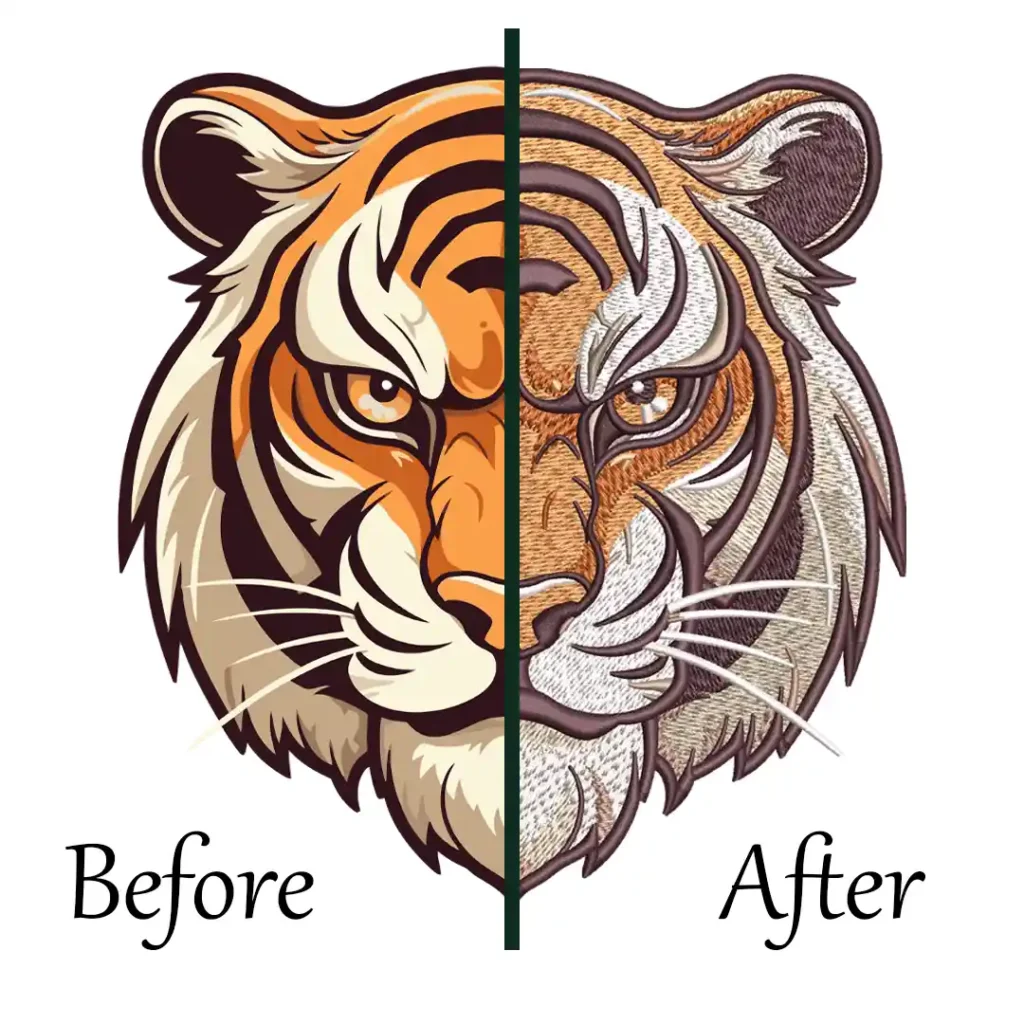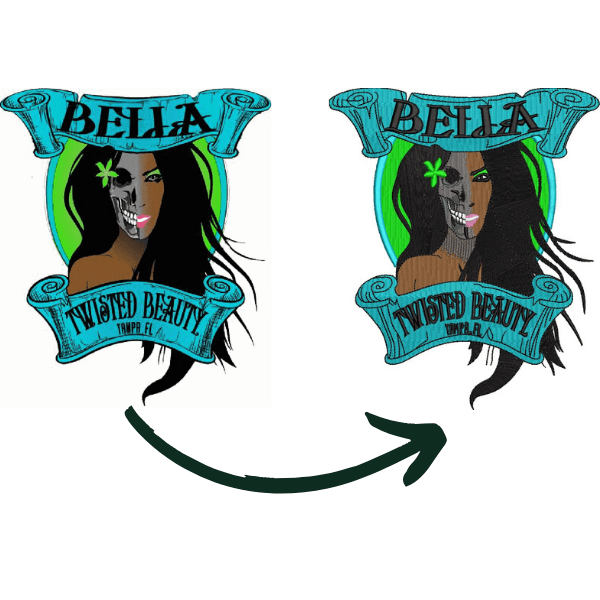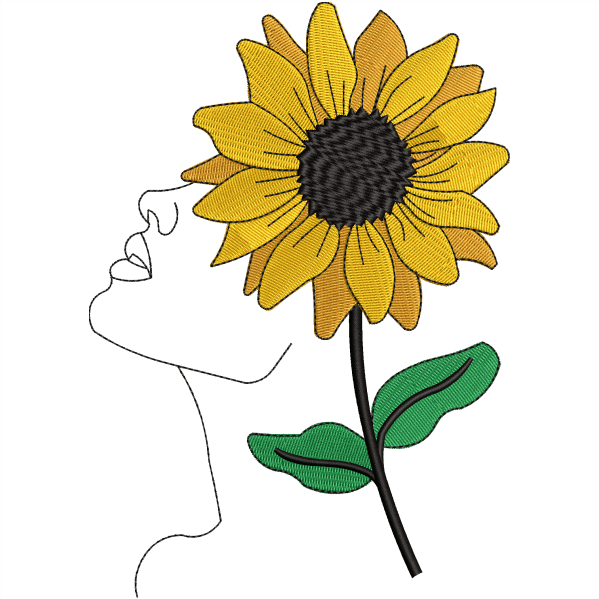The topic for today’s article is very interesting “Types of Embroidery Digitizing Fabric, you must need to know.”
Fabric on which embroidery digitization is done has many types. For details please read this article till the end.
Types Of Embroidery Digitizing Fabric, You Must Need To Know
Digitizing has made embroidery an effortless task , you should choose a most effective layout, create its digital report, and plug it onto the embroidery machine. But in case you are seeking to make specific garments with gentle embroidery designs, there are numerous things you need to understand, including giving importance to your embroidery digitizing fabric while digitizing your embroidery layout.
Things you need to keep in mind before choosing an embroidery.
Digitizing Fabric:
Embroidery sews differently on different types of fabric, and also needs to know how the stitches will keep up on every fabric. Additionally, make sure to keep in mind the weight, texture, weave, and fabric content. To create a pleasing layout on the embroidery digitizing fabric, it is necessary for the digitizer and the embroiderer to recognize these kinds of variables.
Embroidery designs maintain on more potent fabric like caps, hats, canvas, twill, and outerwear. They don’t require lots of underlay fill stitches to hold the integrity of an embroidered layout. Soft, light-weight fabrics have to be digitized differently. If you’re conscious of the type of embroidery digitizing fabric and design you’re going to embroider, you may end with a more sleek design.
When it comes to choosing fabric for machine embroidery, three types of embroidery digitizing fabric are recommended to use:
Nonwoven Fabrics:
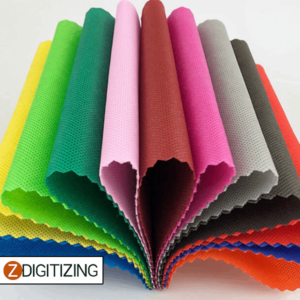
Nonwoven fabrics consist of acrylic and wool, which make felt. These fabrics have fibers that are layered and, after that, bound with one another. They can bond collectively mechanically, chemically, or with heat. Pilling occurs when distinctive lengths of fiber break away from each other, after which there is a small bunch of fibers on the top surface of the fabric. The uses for it in embroidery are limited. However, it works thoroughly while you use it.
Woven Fabrics With Embroidery:
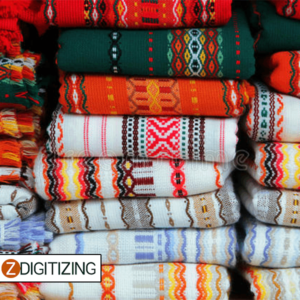
Woven fabrics consist of cotton, flax (linen), silk, wool, rayon, and polyester. They are made with fibers spun into yarn, then woven right into a fabric. When they’re spun into yarn, they might have a slightly loose or a tight twist, and that matters because if loosely twisted, they’ll have extra movement, which can affect your embroidery. Fabrics are woven together on a loom. The loom uses segments of yarn to wave a fabric.
One set of yarn runs the length of the fabric and is below tension to hold it taut during weaving. Those yarns are known as the warp. Regarding a simple weave, the spaces along the yarn can rely upon how close the yarns are positioned together. Wider spaces will affect the more embroidery digitizing fabric to be moved during embroidery.
Knitted Fabric With Embroidery:
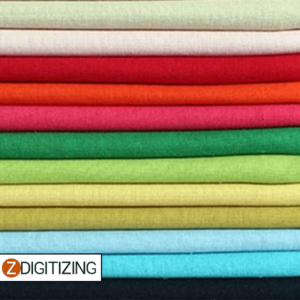
The knitted fabric appears to be the fabric that always gives embroiderers the most challenging time. Knitted material is formed through interloping one yarn. It has numerous stretches and might have massive spaces among the loops. Some knits are tighter than others—however, all of the stretch. The movement of the knit is what is required to be managed while embroidering.
Conclusion:
You can digitize any fabric – cotton, polyester, tri-blend, and wool to supply remarkable embroidery that doesn’t cause puckering or pulling at the fabric. For a clean, crisp look, pick an embroidery digitizing fabric and layout compatible with one another. Be aware of your project’s texture, weight, and color as it will affect the layout of the design.
Do you Need a digitizing or vector art service for your embroidery or screen printing business, With super fast turnaround and excellent quality? Just click the link and get a free quote in less than 5 minutes.
If you want digitized designs in multiple sizes with your embroidery machine file format, click the link.
Hope it will be helpful for you guys!
If there’s any question related to this article you can simply ask in the comment section and don’t forget to share with those you think might be helpful for them.
And finally, thanks for reading!

